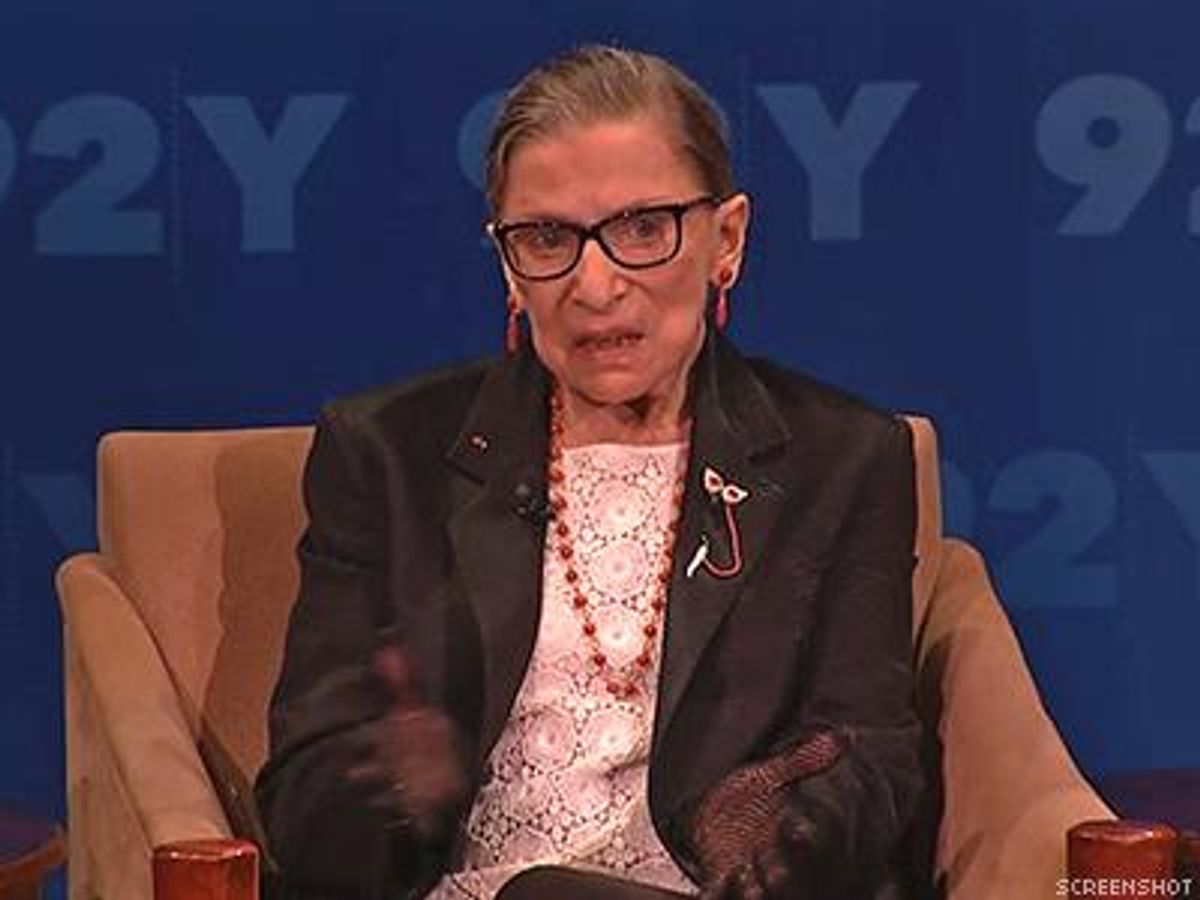Supreme Court Justice Ruth Bader Ginsburg once again made headlines for deftly dodging questions about when (or if) the high court might take up a case on marriage equality, this time in a discussion hosted by NPR's Nina Totenburg.
Speaking at the historic 92nd Street Y in New York City this weekend, the staunchly progressive junior justice reiterated her earlier sentiment that the overwhelming judicial momentum in favor of marriage equality means the Supreme Court isn't under any particularly pressing pressure to decide the issue nationwide.
Explaining why the Supreme Court earlier this month declined to review seven cases bringing marriage equality to five states, Ginsburg noted that "when there's no disagreement among the courts of appeals we don't step in. The major job of the court is to keep the law of the United States more or less uniform."
"If there had been a court of appeals on the other side, we probably would have taken that case," speculated Ginsburg. "But up until now, all of the courts of appeal agree, so there is no crying need for us to step in."
Totenberg pressed the justice further, noting that more than 60 percent of the country now lives in a state with marriage equality.
"With three-quarters of the country now having gay marriage, is it really feasible to envision going back?" Totenberg asked.
"Going back?" Ginsburg asked for clarification.
"Going back in states where [same-sex marriage] is allowed to not being allowed?" Totenburg responded.
"I can't give an opinion on that," Ginsburg responded, smiling. She offered a similarly coy response in August when Katie Couric asked whether the high court would soon decide the issue of marriage equality on a nationwide level
Ginsburg first alluded to the idea that the Supreme Court will act only if there is disagreement among courts of appeal, generally known as a "circuit split," in September. Speaking at the University of Minnesota's Law School, Ginsburg suggested court-watchers keep their eyes on the Fifth and Sixth Circuits for a ruling that might go against the recent tidal wave of pro-equality rulings.
Indeed, Totenburg notes that the Fifth and Sixth circuits are largely considered the most conservative in the country, as the Fifth covers the deeply red states of Texas, Mississippi, and Louisiana; in the latter, a federal judge in September became the first to uphold a state's ban on same-sex marriage. Meanwhile, the Sixth Circuit covers Kentucky, Michigan, Ohio, and Tennessee, where a state judge in August became the first jurist to uphold any state's ban on same-sex marriage since the Supreme Court's landmark decision striking down a key section of the federal Defense of Marriage Act in June 2013. Since that time, 46 state and federal courts have found in favor of the freedom to marry, while only the two judges mentioned above have ruled against marriage equality.
Watch Ginsburg's latest remarks below, with the conversation on marriage equality beginning at the 4:20 mark.





















































































